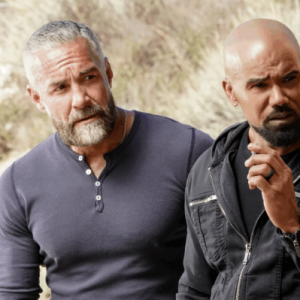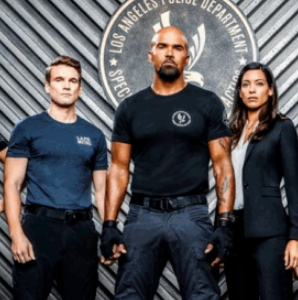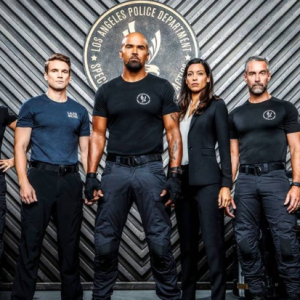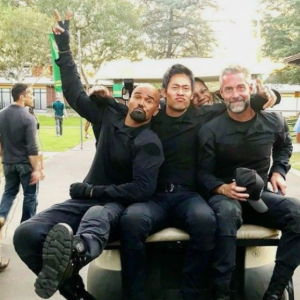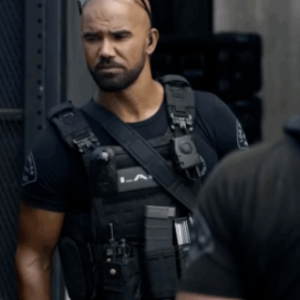The landscape of television is constantly shifting, and few transitions capture audience attention quite like the evolution of a beloved series into a new iteration. Fans of CBS’s action-packed drama S.W.A.T. found themselves at a crossroads of anticipation and apprehension with the announcement of S.W.A.T. Exiles. This forthcoming spinoff promises to carry forward the high-stakes world of the Special Weapons And Tactics unit, headlined once again by the charismatic Shemar Moore as Sergeant Daniel “Hondo” Harrelson. However, a significant tremor ran through the fan base when it became clear that much of the original ensemble, including the steadfast Sergeant David “Deacon” Kay, portrayed by Jay Harrington for seven seasons, would not be making the jump. Harrington, a pivotal figure in the show’s success, recently broke his silence on this new direction, offering a perspective that is not only candid and supportive but also surprisingly insightful, drawing an unexpected parallel to NFL superstar Tom Brady.
Jay Harrington’s portrayal of Deacon Kay was nothing short of foundational to the original S.W.A.T. series. As Hondo’s trusted second-in-command, Deacon embodied the conscience and experience of the team. He was the grounded veteran, a devoted family man grappling with the moral complexities of his demanding profession, and an unwavering mentor whose presence provided a crucial counterpoint to Hondo’s often more impulsive, though equally dedicated, leadership. His storylines often delved into the personal sacrifices inherent in law enforcement, exploring themes of faith, duty, and the delicate balance between career and personal life. Deacon’s measured approach, his unwavering loyalty, and his deep-seated integrity endeared him to viewers, making him an irreplaceable part of the squad’s dynamic and the show’s emotional core. Given his popularity and integral role, it was widely assumed by many viewers that Harrington would seamlessly transition into S.W.A.T. Exiles, making his confirmed absence a significant point of discussion and, for many, a source of disappointment.
Addressing the speculation directly, Harrington revealed in a recent interview that he was not approached to join the spinoff. While acknowledging an initial sting of exclusion, his response was marked by a profound sense of understanding and gratitude. He expressed that he harbors no bitterness, instead recognizing the creative impetus behind the network’s decision. “It’s Shemar’s show now,” he stated, acknowledging Moore’s undeniable star power and the strategic move by CBS to give the franchise a fresh start under his singular leadership. This perspective underscores a professional understanding of the ever-evolving nature of network television and the often-necessary creative refreshes that successful franchises undertake. Rather than dwelling on what could have been, Harrington celebrated his extensive tenure on S.W.A.T. and expressed genuine excitement to experience the new series from the unique vantage point of a fan.
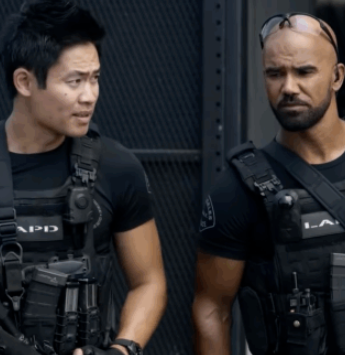
Perhaps the most striking aspect of Harrington’s comments was his unexpected yet brilliantly apt comparison of Shemar Moore’s situation with S.W.A.T. Exiles to Tom Brady’s momentous departure from the New England Patriots to the Tampa Bay Buccaneers. The analogy resonates deeply, painting a vivid picture of a legendary figure stepping into a new chapter, unburdened by the familiar team that had defined a significant portion of his career. Brady, after two decades and six Super Bowl rings with the Patriots, made the audacious move to the Buccaneers, a team with a less storied history. This decision was a testament to his drive for reinvention, a bold risk to prove his success was not solely tied to the Patriots system, but to his own unparalleled leadership and skill. Against considerable odds, he led the Buccaneers to a Super Bowl victory, solidifying his legacy as a transformative leader capable of elevating any team.
In parallel, Shemar Moore, as the undisputed face and lead of the S.W.A.T. franchise, is now tasked with leading S.W.A.T. Exiles without the established ensemble that built the original show’s chemistry. This situation, as Harrington insightfully points out, involves the same elements of reinvention, risk, and the challenge of proving that the franchise’s success can extend and even thrive beyond the comfort and familiarity of its original setup. Both Moore and Brady are quintessential leaders: they command respect, they have consistently carried their respective teams on their shoulders, and they possess an innate ability to perform under immense pressure. Fans of the original S.W.A.T. will undoubtedly miss the dynamic interplay of the OG squad—Deacon, Tan, Luca, Chris, and others—just as Patriots fans initially grappled with the void left by Brady. Yet, Harrington’s comparison suggests that this new chapter presents a powerful opportunity for Moore to redefine and expand the S.W.A.T. legacy, forging a distinct identity for Exiles while building upon the foundation of the original.
Harrington’s support for Shemar Moore extends beyond a simple endorsement; he described Moore as a “quarterback for the cast,” a leader who consistently set the tone, motivated his co-stars, and fostered a palpable sense of family on set. This behind-the-scenes leadership is crucial for any long-running series, and Moore’s ability to cultivate such an environment is a testament to his dedication not just as an actor, but as a driving force behind the S.W.A.T. brand. This comment ties the Tom Brady comparison neatly together, reinforcing the idea that Moore possesses the intrinsic qualities necessary to steer S.W.A.T. Exiles to new heights, even if the familiar faces of the original crew are no longer by his side. It highlights that the spirit of the team, the very essence of what makes S.W.A.T. compelling, can be sustained and indeed, reinvented, through strong leadership.
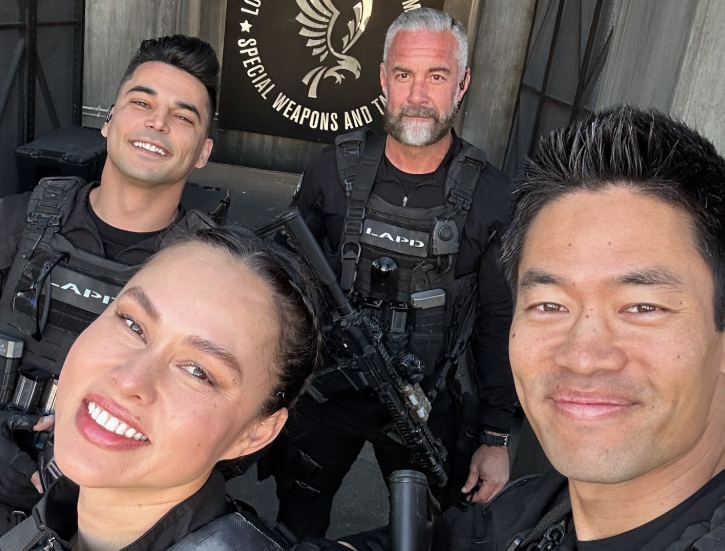
The announcement of S.W.A.T. Exiles and its altered cast has inevitably elicited a spectrum of reactions from the dedicated fan base. On one hand, there is a deep sense of disappointment among longtime viewers who cherished the original ensemble’s chemistry and the individual arcs of characters like Deacon, Tan, and Luca. For these fans, the prospect of an S.W.A.T. without these beloved figures feels like a departure from the show’s essence, raising concerns about whether the spinoff can replicate the emotional investment they had in the original. The comfort of familiarity, the established rapport, and the years spent watching these characters grow have created a strong bond that is difficult to sever. Conversely, there is a considerable wave of excitement for the spinoff. Many viewers see Exiles as an opportunity for fresh narratives, new challenges, and the chance to keep Shemar Moore’s Hondo, a captivating and popular character, firmly in the spotlight. This segment of the audience embraces the idea of creative evolution, eager to see how the S.W.A.T. universe can expand and surprise them with new settings, new team members, and uncharted plotlines.
The phenomenon of a successful television franchise launching spinoffs without carrying over its full original cast is far from new. It’s a well-trodden path in the television industry, exemplified by the expansive universes of NCIS, CSI, and Law & Order. These franchises have repeatedly demonstrated that brand longevity and audience engagement can be sustained, and even enhanced, through strategic segmentation and the introduction of new talent. Sometimes, these ventures soar, creating their own distinct legacies that rival or even surpass the original. Other times, they struggle to find their footing, alienating loyal fans who crave the comfort of the familiar. The decision to center Exiles almost exclusively around Hondo, while a calculated risk, aligns with this industry trend of leveraging a highly popular lead actor to anchor a new narrative. Harrington’s comments acknowledge this reality without succumbing to bitterness, recognizing that such changes are an inherent part of the television production cycle.
Jay Harrington’s ultimate takeaway message is one of profound realism and enduring support. While he may not be physically present in the ranks of S.W.A.T. Exiles, he is unequivocally rooting for its success. His outlook serves as a gentle reminder to fans that television, like life, is in a constant state of evolution. Casts change, stories pivot, and sometimes, moving forward creatively necessitates leaving beloved characters behind. His gracious exit and his insightful comparison to Tom Brady’s journey offer a valuable perspective: change is indeed inevitable, but the potential for greatness, for new triumphs, can persist and manifest in new and exciting forms. For fans, this perspective offers a measure of comfort amidst the bittersweet emotions surrounding Deacon Kay’s absence, encouraging them to look forward to the future of the S.W.A.T. universe with renewed optimism.
